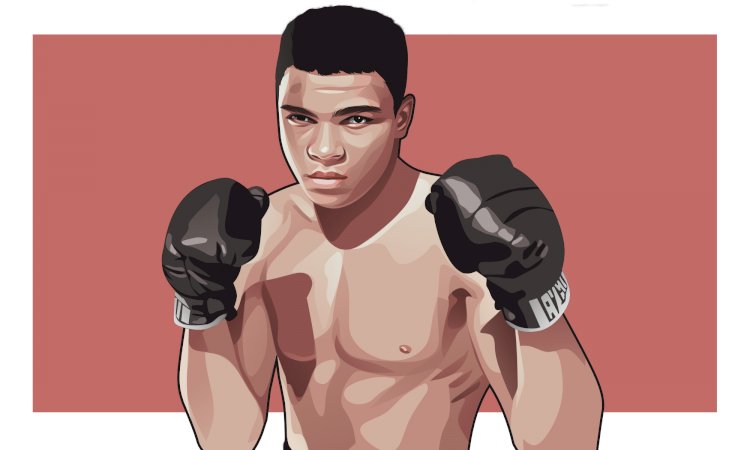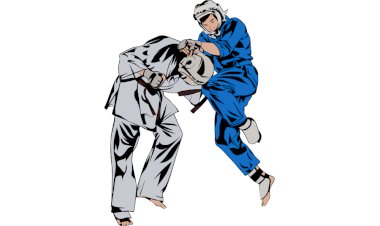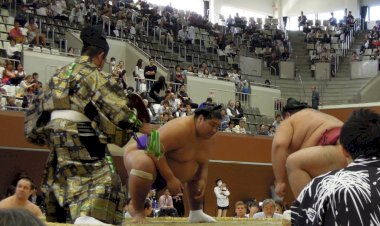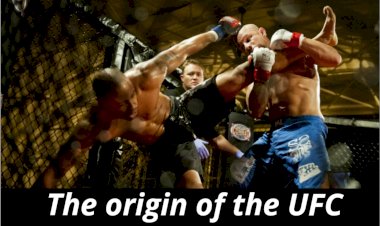What made Muhammad Ali one of the greatest boxers of all time
Muhammad Ali. A name synonymous with boxing and known the world over. Not just in sports but across all genres, Ali is respected and revered in equal measure. Years after his death, a new generation now views Ali as a pioneer outside of the ring and one of the greatest of all time within it.

This leads us to ask: “What made Muhammad Ali one of the greatest boxers of all time?”
As a multiple boxing world champion Muhammad Ali showed skills and craft, mixed with an abundance of charisma, to tame and defame his greatest rivals. The likes of George Foreman, Joe Frazier, Sonny Liston, Ken Norton and Floyd Patterson boxed Ali in epic encounters. Aside from the athletic gifts that Ali possessed in a boxing sense, he was also a master of the mind games and phenomenally strong mentally. Athletes in any sporting discipline cannot succeed at the top level without a powerful mindset, focus and dedication to their craft.
An early incident in Ali’s life could have changed his career trajectory if he had not had such an indomitable strength of character. Known than as Cassius Clay (before his conversion to Islam) a young, hungry light-heavyweight boxer claimed a gold medal at the 1960 Olympic Games in Rome.
This was Clay’s first taste of glory. The Kentucky boy was rightly proud of his monumental achievement. The story goes that upon returning to his home of Louisville -a firmly segregationist city- the newly-crowned Olympic star was refused entry in to a local restaurant. Ali was supposed to have then walked outside and thrown his medal in to the gushing Ohio River. To this day the medal has never been recovered, or the story validated, so whether or not it is actually true remains a mystery.
What is true is that despite another episode of adversity, a young Ali brushed aside the racial slurs and steeled his personality to become an all-time great heavyweight champion.
In 1966, Ali refused a military draft to be enlisted in to the army and fight in the Vietnam War. Despite the decision being overturned, this moral stance cost Ali three years of his prime as he was unable to box from early 1967 until late 1970. He was also stripped of both the WBC and WBA heavyweight titles.
To return from such a potentially crushing career blow may have permanently dented a person of lesser character. Ali, however, showed the true mindset of a champion to not only box his way back up to the highest level but go on to defeat George Foreman in the 1974 “Rumble in the Jungle” and old adversary Joe Frazier in the 1975 “Thrilla in Manila”.
Ali once stated: “It’s the repetition of affirmations that leads to belief. And once that belief becomes a deep conviction, things begin to happen.” A deeply spiritual man, his brains matched his brawn. Ali’s mental sharpness and mindset was every bit as important to his success as physical skills. Ali was a student of his profession, a studier of opponent’s mental makeup as much as their physical capabilities. When breaking down the powerful heavyweight champion of the day, Sonny Liston, poured through newspaper articles and interviews, in an attempt to get a handle on Liston’s psyche. To find out what made the destroyer really tick.
Ali wrote and recited poems, made rhymes about his opponents, used hard-edged slurs when necessary to bring their anger to boil and use the negative energy against them in the ring. The master boxer waged mental warfare on the likes of Joe Frazier; taunted Ernie Terrell on the end of a beating.
Like Floyd Mayweather Jr many years later, Ali envisioned himself constantly as a champion. He trained like a champion, talked like a champion, lived like a champion. Even when, in later life, his body was ravaged by Parkinson’s, Ali still battled like a champion. He believed that what you tell yourself, what you affirm and what you think is what you are and what you will become. Ali’s persistence and positivity helped push him to the top of the pile - and keep him there for over a decade.
Not only was Ali known for his acute mental strength, he was also an exceptionally gifted boxer. His all-round skillset set him apart from the rest. The rope-a-dope tactics employed against George Foreman worked to a tee. Laying back on the ropes, tiring the bigger puncher out, Ali waited for his moment to strike and finished off Foreman with fast accurate combinations.
It was the speed of hand and movement of foot that put paid to Sonny Liston. Ali’s ability to reach the target quickly was too much for Liston. In the third fight against Joe Frazier, Ali’s great physical fitness aligned with his mental dominance as he outlasted his old rival. Ali was fit strong, fast and an expert of his chosen profession.
There were five athletic traits that set Ali apart from the rest:
- Ali’s superior head movement meant he was able to duck and dodge the punches from opponents.
- His rapid left jab snaked out like a cobra and sent opponents off balance, setting up Ali’s next attacks.
- His tactics like the rope-a-dope signified a sharp boxing brain.
- The Ali Shuffle became a staple of his most dominant performances.
- The overhand right was such an accurate, hard shot that it worked time and again for Ali.
Much of Ali’s success in his boxing career and in life came from an ingrained drive and determination to be the best. This, along with his talents, made Muhammad Ali one of the greatest boxers of all time.
Articles by bushu.ch











